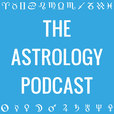
Summary: In the 33rd episode of the podcast Leisa Schaim joins the show to talk about the recent History Channel episode on astrology, and discuss the pros and cons of the coverage of astrology in that show.<br> During the course of the podcast we provide a synopsis of the History Channel episode, as well as a commentary of some of the things we thought were done well, as well as some critiques about things that could have been done better.<br> The History Channel episode largely focused on the debate about whether astrology is a science, and in particular some of the common criticisms of astrology, and so we ended up discussing some of these issues extensively in our commentary.<br> The episode was part of the History Channel series The Universe: Ancient Mysteries Solved, and it was episode 9 in season 7, titled “Predicting the Future.” It originally aired on May 16, 2015, although you can buy the episode and watch it online now for $2 on <a href="https://www.youtube.com/watch?v=MpGjFhasHk4&index=9&list=ELgTHBSeIejWI" target="_blank">on YouTube</a> or through <a href="http://www.amazon.com/gp/product/B00XWTD3HS/ref=as_li_tl?ie=UTF8&camp=1789&creative=390957&creativeASIN=B00XWTD3HS&linkCode=as2&tag=apoteastroblo-20&linkId=QZTAEN77GWVY4NLD" target="_blank" rel="nofollow">Amazon instant video</a>.<br> For more information about Leisa’s work visit her website at: <a href="http://leisaschaim.com" target="_blank">LeisaSchaim.com</a><br> Below you will find the synopsis of the episode that we wrote out and used as part of our show notes, followed by links to play or download this episode of the podcast.<br> Synopsis of the History Channel Episode and Show Notes<br> <br> * The episode opens by asking whether astrology is a science or just superstition.<br> * First 10 minutes or so is a quasi-history of astrology.<br> * Goes into the difference between astronomy and astrology.<br> * Gives various different definitions of astrology early on and throughout the show.<br> * Points out that astronomers were also astrologers early on.<br> * Mistakenly attributes the development of the zodiac to the Greeks in the 4th century.<br> * Talks a little bit about the origins of the zodiac.<br> * Talk about the use of astrology by powerful people in the past. The astronomers write this off as superstition.<br> * They talk about Kepler and his contributions to astronomy, and acknowledge his use of astrology, but write this off as just making pocket money off of superstitious patrons.<br> * Demonstration about how the constellations are stars that have no connection with each other. Only patterns from our vantage point.<br> * Divergence of astronomy and astrology by the 18th century<br> * Talk about the revival of astrology and advent of Sun-sign horoscope columns in the 1930s.<br> * Segment on objections to Sun-sign astrology.<br> * They let the astrologers respond by pointing out the birth chart.<br> * They set up a test of astrology with the two astrologers being given a chart to interpret.<br> * Despite this the astronomers point out that there are no statistical studies validating astrology, and say that it is just guess work.<br> * They talk about the prominent leaders who have used astrology, despite lack of statistical evidence for its validity – Hitler, Churchill, Reagan,<br> * Long segment on astrology and precession.<br> * Mercury retrograde segment.<br> * Transition into section on the astrological mechanism, and whether there is any known force that could account for astrology.<br> * New section on whether there could be an unknown force.<br> * Segment where the scientists try to say that astrologers haven’t kept up with recent astronomical discoveries (which is hilariously absurd).<br> * Segment on scientific tests of astrology.<br> * Closing segment talking about the number of people who still believe that astrology is scientific de...
